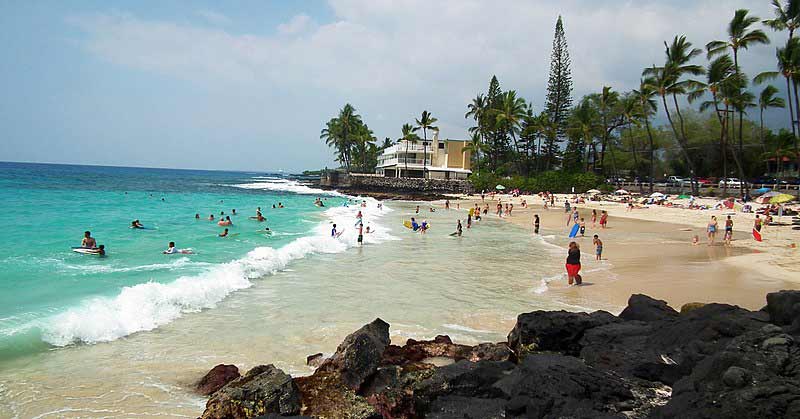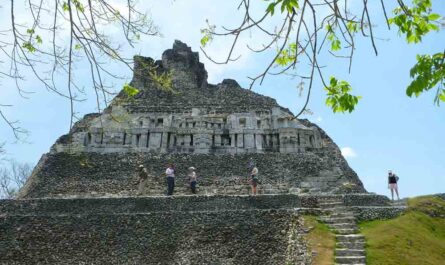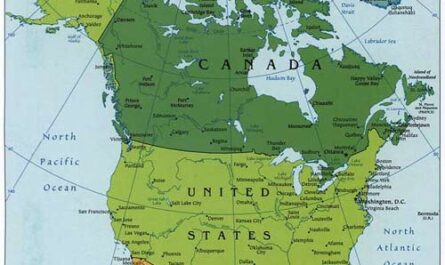Politically located in North America, there are many interesting facts to know about beautiful Hawaii Island. It is interesting to know that, geographically, Hawaii does not belong to any continent. Hawaii Island, also known as the Big Island, is a captivating destination that offers a rich tapestry of nature, native culture, and diverse experiences. Nestled in the heart of the Pacific Ocean, it is the largest of the Hawaiian Islands and boasts a unique blend of geographical wonders, vibrant traditions, and a thriving economy. In this article, I am going to talk about interesting facts to know about Hawaii Island.
Hawaii Island is a paradise that seamlessly blends the wonders of nature, the richness of native culture, and the opportunities of a thriving economy. Visitors are invited to immerse themselves in the vibrant traditions, explore diverse landscapes, and experience the unique aloha spirit that defines this enchanting destination.
Interesting Facts to Know About Hawaii
Attractions on Hawaii Island are diverse, from the historic Pu’ukohola Heiau to the vibrant underwater world at Kealakekua Bay. Adventurous travelers can explore the Waipi’o Valley by horseback or witness the breathtaking Akaka Falls. In terms of cuisine, the island offers a fusion of flavors influenced by its multicultural heritage. Local favorites include poke, lomi lomi salmon, and the iconic plate lunch, featuring a mix of Asian, Polynesian, and American culinary traditions. Here are some interesting facts about Hawaii Island:
1. Geological Diversity on the Big Island
The Big Island, a marvel in the Pacific archipelago, boasts a geological tapestry characterized by two distinct varieties of solidified lava. Among these are the renowned Pahoehoe lava, known for its smooth, undulating surface that resembles twisted ropes frozen in time. A stark contrast emerges with the Aa lava, marked by its jagged, rough texture, creating a formidable terrain that stands as a testament to the island’s tumultuous volcanic history. The interplay between these geological formations not only showcases nature’s artistic prowess but also offers a glimpse into the island’s complex geological evolution.
2. The Vibrant Palette of Lava
Contrary to the popular perception of lava being uniformly black, the Big Island unveils a mesmerizing palette of colors within its molten rock. Far from monochromatic, the lava here takes on hues ranging from fiery reds to earthy browns, introducing a nuanced dimension to the island’s volcanic landscapes. This kaleidoscopic display serves as a reminder that nature’s creations are often more intricate and diverse than conventional wisdom may suggest, challenging preconceived notions about the aesthetics of volcanic activity.
3. Floral Splendor in the Crater of Kilauea
Deep within the expansive crater of Kilauea, a botanical marvel unfolds as a testament to the resilience of life amidst volcanic forces. Amidst the hardened lava and seemingly inhospitable terrain, a delicate symphony of colors emerges as vibrant flowers bloom, creating a stark and unexpected contrast against the backdrop of desolation. This microcosm of flora within the crater not only defies the harsh conditions but also adds a touch of elegance to the raw, primal beauty of Kilauea’s geological wonders.
4. Lei: A Symbolic Return to Earth
Beyond the geological wonders, the cultural tapestry of the Big Island is interwoven with traditions that pay homage to the Earth. Lei, the traditional Hawaiian garland, takes on a profound significance as it symbolizes not only beauty and hospitality but also a cyclical return to the earth. Crafted from natural materials like flowers, leaves, and shells, leis are offerings that, once adorned, eventually find their way back to the land. This ritualistic return underscores the island’s connection to nature, emphasizing a harmonious cycle that mirrors the ebb and flow of life on the Big Island.
5. Mauna Loa: Hawaii’s Towering Giant
Mauna Loa stands as the unrivaled giant among volcanoes globally, a colossal force of nature commanding the landscape of Hawaii. This geological behemoth, which translates to “Long Mountain” in Hawaiian, is a shield volcano, showcasing its majestic presence on the Big Island. Its enormity is truly awe-inspiring, making it the largest volcano on Earth. The sheer scale of Mauna Loa evokes a sense of wonder, emphasizing the extraordinary geological forces that have shaped the Hawaiian archipelago.
6. Maui: The Valley Isle’s Unique Topography
Referred to as the “Valley Isle,” Maui’s topography is a testament to the island’s intriguing geological history. Nestled between the imposing Mount Haleakala to the east and the majestic West Maui mountain range, Central Maui rests within a vast valley, creating a breathtaking landscape that captivates the imagination. This distinctive formation contributes to Maui’s allure, offering a diverse range of ecosystems and scenic vistas that vary from lush valleys to volcanic craters, creating an unparalleled visual tapestry that unfolds as one explores the island.
7. Aloha: The Dual-Greeting Hawaiian Expression
In the enchanting realm of Hawaiian culture, the word “Aloha” transcends its literal meaning. Serving as both a warm “hello” and a heartfelt “goodbye,” Aloha embodies the spirit of hospitality and connection. This versatile greeting encapsulates the essence of Hawaiian communication, where sincerity and friendliness converge. The cultural richness encapsulated in this single word reflects the warmth and openness that defines the Hawaiian way of life, creating an atmosphere of inclusivity and kindness for both locals and visitors alike.
8. The Monarchial Legacy of Hawaii
Before the winds of change swept through the Hawaiian Islands, a monarchy reigned over the archipelago, complete with kings, queens, princes, and princesses. Lahaina, nestled in West Maui, held the prestigious position of being the capital of the Kingdom of Hawaii from 1824 to 1845. Stepping into Lahaina today is like stepping into a living historical tapestry, where remnants of the monarchy’s legacy linger in the air. The cobblestone streets and charming architecture of Lahaina whisper tales of a bygone era, inviting visitors to delve into the deep and nuanced history that shaped the islands into the cultural mosaic they are today.
9. Hawaii’s Unique Time Zone
Hawaii, a mesmerizing archipelago in the Pacific Ocean, boasts its temporal realm known as Hawaiian Standard Time. In a divergence from the mainland’s clock-shifting rituals, Hawaii boldly forgoes the intricacies of daylight savings time. Positioned on a temporal axis distinct from the contiguous United States, the Hawaiian clock ticks persistently two hours behind the Pacific Standard Time and a leisurely five hours behind the Eastern Standard Time. This temporal idiosyncrasy offers a distinctive rhythm to life on the islands, a captivating dance to the beat of its temporal drum.
10. Governance in Hawaii’s Counties
Within the enchanting tapestry of Hawaii’s landscape lie four distinct counties: the verdant Kauai, the bustling city and county of Honolulu, the picturesque Maui, and the sprawling Hawaii. Each of these counties pulsates with a unique vibrancy, governed by a mayor and council vested with the responsibility of orchestrating the symphony of local governance. These leaders navigate the diverse needs and aspirations of their respective communities, weaving a narrative of governance as varied as the landscapes that define Hawaii’s captivating charm.
11. Geographic Distances of the Aloha State
Situated in splendid isolation amidst the vast expanse of the Pacific, Hawaii unfurls its beauty across staggering distances. A staggering 2,390 miles from the sun-kissed shores of California, the archipelago extends its embrace across the oceanic vastness. Gazing eastward, the distance amplifies—3,850 miles from the cultural tapestry of Japan, 4,900 miles from the mystique of China, and 5,280 miles from the tropical allure of the Philippines. These vast expanses underscore the remoteness of Hawaii, emphasizing its unique position in the Pacific mosaic.
12. The Diversity of the Hawaiian Archipelago
Nestled in the vast expanse of the Pacific Ocean, the Hawaiian archipelago stands as a testament to nature’s grandeur, comprising not merely a handful, but an astounding 132 islands and islets. Each of these land masses, adorned with unique landscapes and teeming biodiversity, contributes to the rich tapestry of Hawaii’s allure.
13. Kauai: A Testament to Time’s Endless Dance
Amongst this archipelagic symphony, Kauai emerges as a profound embodiment of time’s relentless passage. As the oldest Hawaiian island, Kauai bears the marks of eons, its rugged terrains, and lush greenery narrating a story etched by the hands of geological epochs. This ancient isle invites explorers to unravel the secrets concealed in its valleys and mountains, offering a glimpse into Hawaii’s geological past.
14. The Big Island: A Symphony of Youth and Formation
In stark contrast to Kauai’s ancient charm, the Big Island stands as a testament to the constant pulse of creation. As the youngest among the Hawaiian siblings, the Big Island captivates with its dynamic landscapes and volcanic vitality. One of the intriguing facets of Hawaii lies in this age diversity, where islands become chapters in a geological saga, each with its narrative of birth, evolution, and transformation.
15. Linguistic Diversity in Hawaii
Nestled in the vibrant tapestry of Hawaii’s cultural landscape are three distinctive languages that weave through the archipelago’s daily discourse. Among them, two stands formally acknowledged as official languages, bearing the weight of administrative and legal importance, while a third, more informal and conversational, dances freely among the locals. This linguistic symphony paints a rich portrait of Hawaii’s multifaceted identity, where the interplay of languages mirrors the diverse heritage and global influences that have shaped the islands.
16. Iolani Palace: A Regal Gem in the American Tapestry
An emblem of regal distinction within the United States, Iolani Palace stands as the sole official Royal Palace in the nation. Embraced by the tropical embrace of Hawaii, this architectural masterpiece exudes an air of majestic authority and historical significance. With its ornate details and lush surroundings, Iolani Palace narrates the royal history of the islands, serving as a testament to a bygone era where Hawaiian royalty once strolled its opulent halls.
:max_bytes(150000):strip_icc()/GettyImages-1181521455-ca67a365d1db441382fe442af1e3b98b.jpg)
17. King Kamehameha’s Statue: A Sovereign Sentinel
Guarding the grounds of the Honolulu Supreme Court, the statue of King Kamehameha stands as an imposing figure, its bronze form a tribute to Hawaii’s ancient monarchs. However, contrary to popular belief, this statue is not a solitary sentinel. Rather, it is one among a select few, dispersed strategically across the islands. The misperception of its singularity invites a nuanced exploration of Hawaii’s reverence for its royal lineage, manifesting not only in one statue but echoed in various regal tributes.
18.Hawaii’s Vertiginous Sea Cliffs: Nature’s Pinnacle
Beneath the azure skies and the embrace of the Pacific, Hawaii boasts a natural wonder that touches the very zenith of awe-inspiring beauty — the world’s loftiest sea cliffs. These colossal sentinels of the coastline rise with an otherworldly majesty, their rugged edges sculpted by the relentless caress of wind and water. To stand atop these precipitous cliffs is to be humbled by the sheer grandeur of nature, an experience that transcends the ordinary and plunges into the extraordinary realms of geological magnificence.
19.Loihi: The Emerging Jewel of the Pacific Depths
While the Big Island flourishes under the sun’s gaze, a nascent gem, known as Loihi, takes shape beneath the ocean’s surface. This embryonic Hawaiian island, forming offshore of the Big Island, captures the imagination with its underwater spectacle. A testament to the perpetual dance of tectonic forces, Loihi whispers of a future where new land shall breach the ocean’s surface, adding another layer to Hawaii’s ongoing narrative of creation.
20. The Big Island’s Unstoppable Growth
Amid this geological symphony, the Big Island emerges as an exemplar of ceaseless expansion. Each passing day witnesses its gradual increase, an imperceptible but inexorable growth. As lava flows from its volcanic heart, the island gains ground, shaping its destiny in the crucible of natural forces. The notion of an island growing, evolving, and asserting its presence lends Hawaii an aura of perpetual change, a reminder that even the seemingly immutable can be touched by the hand of transformation.
21.Hawaii’s Pineapple Dominion
Nestled amidst the emerald landscapes and azure waters, Hawaii plays a pivotal role in the global pineapple narrative. A revelation that transcends mere trivia: more than one-third of the world’s commercial supply of pineapples traces its origins to the fertile soils of Hawaii. The pineapple fields, with their spiky crowns reaching towards the Hawaiian sun, contribute a sweet and tangy note to the global palate. This agricultural dominance weaves Hawaii into the fabric of the world’s culinary delights, establishing its pineapple prowess on a global stage.
22. The Fusion of Nations: Hawaiian Flag’s Unique Identity
Hawaii’s flag stands as a captivating blend, a harmonious synthesis of two distinct nations’ flags. Its design is not merely a mere replication but a thoughtful amalgamation, weaving together the cultural threads of Hawaii’s history. The juxtaposition of elements from disparate origins manifests a visual representation of the rich tapestry that defines the Hawaiian archipelago. The flag becomes a symbolic testament to the islands’ unique position, bridging worlds and encapsulating the spirit of unity amid diversity.
23. Smoke-Free Serenity: Hawaii’s Beaches Unveiled
Within the pristine confines of Hawaii’s breathtaking beaches, a curious revelation awaits: they are sanctuaries of fresh air, untouched by the tendrils of smoke. This tidbit of information adds a layer of charm to the tropical paradise, signaling a commitment to environmental well-being and a desire for visitors to indulge in the invigorating embrace of clean, salty breezes. It is not merely a regulation but a deliberate choice, rendering each sun-kissed stretch a haven for those seeking both physical and respiratory rejuvenation.
24. The Candlenut Tree: Hawaii’s Emblem of Tradition and Utility
The resplendent archipelago of Hawaii, renowned for its paradisiacal landscapes and vibrant culture, proudly designated the Candlenut tree as its state emblem since the historic year 1959. This arboreal symbol, scientifically known as Aleurites moluccanus, stands as a testament to the profound connection between the islands and their indigenous flora. Resilient and revered, the Candlenut tree, with its glossy foliage and multifaceted applications, encapsulates the essence of Hawaii’s rich heritage.
25. Lake Waiau: The Enigmatic Glacial Gem of Hawaii
Nestled amidst the verdant embrace of Hawaii’s diverse topography lies the enigmatic Lake Waiau, a glacial lake that bestows a touch of mystique upon the archipelago. This celestial body of water, cradled in the embrace of Mauna Kea’s majestic slopes, serves as a testament to the geological wonders that adorn the Hawaiian landscape. Lake Waiau, with its crystalline depths and awe-inspiring surroundings, beckons explorers and nature enthusiasts to unravel the secrets concealed within its icy embrace.
26. Mauna Kea Summit: A Celestial Observatory Atop Earth’s Apex
Ascending to the summit of Mauna Kea, one finds not only the loftiest peak in Hawaii but a celestial observatory of unparalleled significance. Currently hosting an ensemble of 13 telescopes, this astronomical vantage point transcends the terrestrial realm, inviting astronomers and stargazers into a cosmic dialogue. The impending addition of the 14th telescope, poised to become the second-largest on the planet, heralds a new chapter in humanity’s quest to decipher the celestial tapestry that unfolds above the clouds.
27. Hawaii’s Island Palette: A Kaleidoscope of Colors and Flowers
Embarking on a botanical odyssey across the Hawaiian archipelago unveils a vibrant tapestry of colors and fragrances, each island adorned with a distinct hue and floral emblem. In the picturesque realm of Maui, the official color is an exquisite shade of pink, resonating with the island’s romantic allure. Complementing this chromatic identity is the Lokelani, also known as the Damask Rose, a bloom that epitomizes Maui’s floral elegance. Not to be outdone, the state flower of Hawaii, the yellow hibiscus, stands as a symbol of the archipelago’s collective beauty, a kaleidoscope of nature’s splendor across the islands.
28. Prolonged Life in Pacific Serenity: Hawaii’s Exceptional Longevity
A statistical beacon shines over the Pacific, illuminating the fact that life expectancy in Hawaii reaches an impressive 81.3 years. This exceeds the benchmarks set by several of its mainland counterparts in the United States. The enigma of this longevity is complex, perhaps intertwined with the very essence of the islands. The amalgamation of a moderate climate, a health-conscious lifestyle, and a unique cultural milieu could be contributing factors. The islands, nestled in the Pacific expanse, seem to cradle life with an unparalleled tenderness, allowing it to gracefully unfold over the years.
29. Floral Adornments: Lei, a Symbolic Gesture
In the cultural kaleidoscope of Hawaii, the lei emerges as a vibrant thread, intricately woven into celebratory moments and offered as a token of warm welcome. These garlands, a manifestation of hospitality and festivity, vary in composition. Most commonly crafted from orchids or plumeria, they also showcase the island’s diverse natural wealth by incorporating shells, nuts, or feathers. For Hawaiian men, the kukui nut lei becomes a distinguished choice, while on special occasions, the fragrance of maile leaves envelops them in open-ended lei. Each lei, a wearable work of art, symbolizes the spirit of aloha and adds a fragrant layer to the cultural tapestry of Hawaii.
30. Honolulu’s Coastal Majesty
More than a hundred world-renowned beaches, adorned with the sun-kissed allure of golden sands and azure waves, gracefully encircle the vibrant city of Honolulu. Each shore, a testament to nature’s artistic prowess, beckons travelers to bask in the paradisiacal symphony of sun, sea, and sand. These coastal gems, endowed with a diverse range of landscapes, from secluded coves to expansive stretches, elevate Honolulu to an unrivaled status among global beachfront destinations.
31. Oahu’s Allure: A Magnet for Seekers of Surf and Sun
The island of Oahu, a captivating jewel in the Pacific, possesses an unparalleled allure that lures inquisitive wanderers from every corner of the globe. Surpassing all other Hawaiian islands in drawing guests, Oahu stands as the indisputable epicenter of the archipelago’s cultural, recreational, and natural riches. An extraordinary revelation unfolds for surf enthusiasts, as one-third of the state’s premier surfing sanctuaries find their home along Oahu’s pristine shores, where the rhythmic dance between surfer and wave becomes a captivating spectacle.
32. Honoring Hawaiian Royalty: Kamehameha Day and Prince Kuhio Day
Hawaii, with its lush landscapes and vibrant culture, continues to pay homage to its ali’i, or royalty, from bygone eras. The island state observes two significant occasions annually, each a celebration steeped in historical reverence. The first is Kamehameha Day, a commemoration held on June 11, dedicated to honoring the legacy of King Kamehameha the Great. The second is Prince Kuhio Day, a solemn affair taking place on March 26, paying homage to the esteemed Prince Jonah Kuhio Kalanianaole. Both dates hold special significance as Hawaii state holidays, drawing locals and visitors alike into the festivities marked by exuberant festivals and colorful parades, pulsating with the beats of traditional Hawaiian music.
33. Cultural Etiquette: Barefoot Traditions in Hawaiian Homes
A distinct cultural practice that defines the essence of Hawaiian hospitality revolves around the removal of footwear before stepping into someone’s abode. This ritual, ingrained in the island’s social fabric, transcends considerations of cleanliness, extravagance, or the formality of an occasion. Whether adorned in pristine sneakers of the highest fashion or well-worn sandals, all footwear is left at the door. This customary act not only exemplifies the spirit of respect but also serves as a tangible embodiment of the islands’ laid-back, communal lifestyle, fostering a sense of unity and shared space among residents and guests. Travel essentials, accessories, kit & items on Amazon
34. Mailing Memories: Returning Lava Stones to Hawaii
In a remarkable display of respect for the Hawaiian belief in Pele, the goddess of fire and volcanoes, visitors to the islands partake in a unique tradition. Every year, hundreds of lava stones, symbolizing the raw, elemental power of the islands, find their way back to Hawaii through the mail. These stones, taken as souvenirs by well-meaning travelers, are sent back to their rightful home, often accompanied by letters expressing apologies for any perceived disturbance of Pele’s domain. This cyclical exchange not only reveals a profound connection between the visitors and the land but also showcases a shared understanding of the spiritual significance embedded in the very rocks beneath the Hawaiian soil.
35. Guardians of the Sea: Hawaiian Green Sea Turtles and Conservation Laws
The mesmerizing Hawaiian green sea turtles, known locally as ‘honu,’ are not merely icons of the islands’ coastal beauty but also beneficiaries of stringent protective measures. Governed by both Federal and State laws, these majestic creatures enjoy legal safeguards that underscore Hawaii’s commitment to environmental preservation. Visitors and locals alike witness the graceful dance of the honu in the Pacific waves, understanding that their presence represents a delicate ecological balance. By safeguarding the sea turtles, Hawaii exemplifies its dedication to maintaining the biodiversity that defines its waters, ensuring that future generations can marvel at the same natural wonders that have enraptured inhabitants for centuries. Cheap but Good Hosting Services Rated by Reviewers
36. Niihau: An Oasis of Tranquility and Minimalism
Niihau, Hawaii’s seventh-largest inhabited island, emerges as a sanctuary of simplicity, an oasis untouched by the hurried pace of modernity. Home to a mere 130 residents, Niihau stands as a living testament to a bygone era, where the absence of automobiles and the lack of paved roads weave a narrative of tranquility and isolation. In this remote haven, time seems to slow, offering a refuge for those seeking solace in the embrace of unspoiled landscapes and a tight-knit community that thrives amidst the whispers of gentle trade winds.
37.Hawaii’s Aromatic Legacy: The Exclusive Realm of Coffee Cultivation
Hawaii, a state distinguished by its natural wonders, boasts a unique claim to fame as the sole region within the United States to cultivate coffee. Amidst the verdant landscapes and volcanic soils, coffee plantations flourish, their emerald hues blending harmoniously with the rich tapestry of the islands. The meticulous cultivation and harvesting processes unfold against a backdrop of breathtaking scenery, where the aroma of freshly grown coffee beans mingles with the invigorating scent of tropical blooms. Hawaii’s role as the nation’s coffee custodian adds another layer of allure to its diverse and captivating tapestry. How AI, ChatGPT maximizes earnings of many people in minutes
38. Hawaii’s Historic Entry into Statehood
On August 20th, 1959, Hawaii etched its name into the annals of history by becoming the 50th state to be admitted to the union. This milestone marked the culmination of a long journey, blending the rich cultural heritage of the islands with the broader tapestry of the United States. Hawaii’s inclusion as a state stands as a testament to the unique blend of tradition and modernity that defines the archipelago. The date serves as a touchstone, anchoring the islands in the historical narrative of the United States.
Other Interesting Articles
- 60 Interesting Facts about Kathmandu City Nepal
- 30 Interesting Facts About the Flag Of Scotland
- 15 Interesting Fun Facts – Everland Theme Park, South Korea
- 75 Awesome Washington DC USA Interesting Fun Facts
- 70 Archipelago Ibiza Spain Interesting Fun Facts Trivia
- 33 Gyeongbokgung Palace South Korea Interesting Fun Facts
- 29 Andaman and Nicobar Islands Interesting Fun Facts
- 40 Irish Saint Patrick’s Day Interesting Fun Facts
- 25 Interesting Fun Facts About Nami Island South Korea
- 89 Wonders of the World One Must See in Lifetime
- Cultural Wonders of the World – A Complete List
- 22 Pashupatinath Temple Nepal Interesting Fun Facts
- List of 54 Greatest Empires in Entire History Timeline
- 100 United Nations Facts – The UN Basic Facts for All
- 100 Plateau of Tibet Facts to Astonish You
- 200 Kazakhstan Fun Facts Everyone Should Know
- 125 Interesting Facts about Hungary You Must Enjoy
- 200 Interesting Facts about Poland for Travelers
- 200 Cool Facts about Germany to Surprise You



